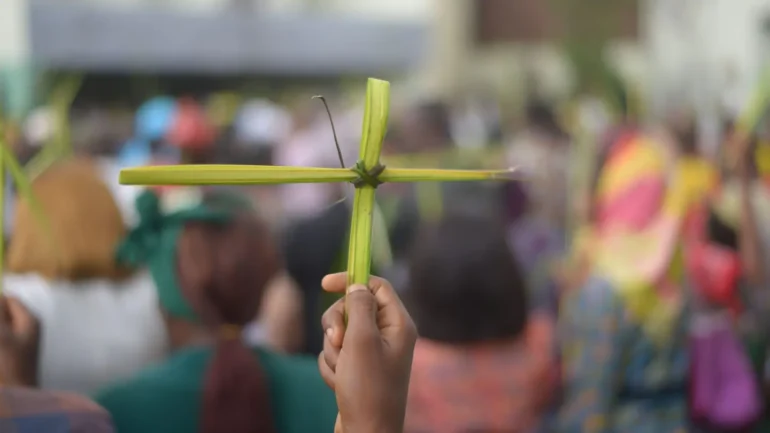On October 31, 2025, U.S. President Donald Trump made headlines by announcing that Nigeria, Africa’s most populous nation and top oil producer, would be added to the U.S. State Department’s list of “Countries of Particular Concern” (CPC). This designation is reserved for countries the United States identifies as engaging in or tolerating “systematic, ongoing, egregious violations of religious freedom,” including acts like torture, prolonged detention without charges, forced disappearances, or other severe denials of life, liberty, or security. In a fiery post on his Truth Social platform, Trump directly tied the decision to what he described as a dire crisis facing Christians in the country.
“Christianity is facing an existential threat in Nigeria. Thousands of Christians are being killed. Radical Islamists are responsible for this mass slaughter,” Trump wrote. He continued, “I am hereby making Nigeria a ‘COUNTRY OF PARTICULAR CONCERN.'” The president emphasized urgency, stating, “When Christians, or any such group, is slaughtered like is happening in Nigeria (3,100 versus 4,476 Worldwide), something must be done!” He tasked Republican Congressman Riley Moore, along with House Appropriations Committee Chairman Tom Cole, to “immediately look into this matter, and report back to me.” Wrapping up his post, Trump declared, “The United States cannot stand by while such atrocities are happening in Nigeria, and numerous other Countries. We stand ready, willing, and able to save our Great Christian population around the World!”
This move places Nigeria alongside a list of 12 other nations already on the CPC roster, according to the State Department website: Burma (Myanmar), People’s Republic of China, Cuba, Eritrea, Iran, the Democratic People’s Republic of Korea (North Korea), Nicaragua, Pakistan, Russia, Saudi Arabia, Tajikistan, and Turkmenistan. A separate “Special Watch List” includes countries like Algeria, Azerbaijan, the Central African Republic, Comoros, and Vietnam, which face less severe but still notable issues. The U.S. also maintains a list of non-state “entities of particular concern,” such as al-Qa’ida affiliate Al-Shabaab, Boko Haram, Hayat Tahrir al-Sham, the Houthis, ISIS-Sahel, ISIS-West Africa, Jamaat Nasr al-Islam wal Muslimin, and the Taliban.
Trump’s announcement, reported by outlets like Reuters, Livemint, and others on November 1, 2025 (with timestamps around 1:09–1:12 a.m. IST), reignited debates over religious violence in Nigeria. The president provided no specific evidence in his post to back up the claim of “thousands” of Christians being killed annually by “radical Islamists,” but his words echo long-standing concerns raised by some U.S. lawmakers about a potential “Christian genocide” in the region.
The Complex Reality of Violence in Nigeria
Nigeria, with a population of over 200 million, is roughly split between a Muslim-majority north and a largely Christian south. For more than 15 years, the northeast has been ravaged by jihadist insurgency from Boko Haram, an Islamist extremist group that has pledged allegiance to ISIS in some factions. This conflict has resulted in over 40,000 deaths and displaced more than two million people, according to reports. Boko Haram’s attacks often target both Muslims and Christians, but churches and Christian communities have been hit hard in efforts to impose strict Islamic rule.
However, experts and on-the-ground analyses paint a more nuanced picture, cautioning that labeling the violence solely as anti-Christian persecution oversimplifies the issues. Large swaths of northwest, north, and central Nigeria are plagued by criminal gangs known as “bandits.” These groups raid villages, killing residents, kidnapping for ransom, looting homes, and burning properties—actions that show “no apparent religious motive,” as noted in Reuters coverage. Victims include people from various faiths, and the primary drivers appear to be economic gain and lawlessness rather than ideology.
Adding to the complexity are frequent clashes between nomadic Muslim herders (often Fulani) and sedentary Christian farmers, particularly over scarce land and water resources in the north-central “Middle Belt” region. These disputes have taken on a sectarian tone in a country with a history of religious riots, but specialists argue the root causes are environmental and demographic. “The conflict in north central Nigeria is primarily over land, which is being squeezed by expanding populations and climate change,” Reuters explained, highlighting how desertification and population growth intensify competition for grazing and farming areas.
Nigeria’s government has consistently rejected claims of a targeted Christian genocide, viewing such narratives as politically charged and unhelpful to peace efforts. Past U.S. congressional pushes for similar recognitions have met resistance, with experts warning that framing the violence purely through a religious lens ignores banditry, resource wars, and governance failures.
Broader Implications and U.S. Response
By designating Nigeria a CPC, the Trump administration opens the door to potential sanctions, diplomatic pressure, or aid restrictions aimed at improving religious freedom. This isn’t the first time Nigeria has faced scrutiny; previous administrations have debated adding it to watch lists but held back due to the multifaceted nature of the conflicts. Trump’s swift action, including involving Congress, signals a more aggressive stance on global Christian advocacy—a theme he has championed since his first term.
The announcement comes amid heightened U.S. travel warnings for parts of West Africa, including nearby Niger, due to terrorism and kidnapping risks. It also aligns with Trump’s broader rhetoric on protecting religious minorities worldwide. As he put it in his post, the U.S. must act to “save our Great Christian population.”
While Trump’s claims have energized supporters who see validation in reports of church bombings and village massacres, critics urge a balanced approach. Accurate data on religious affiliations of victims is hard to come by, and conflating all violence under “radical Islamist” attacks risks alienating Muslim communities working against extremism. For now, the world watches as lawmakers investigate and Nigeria responds to its new status on the U.S. watch list.
